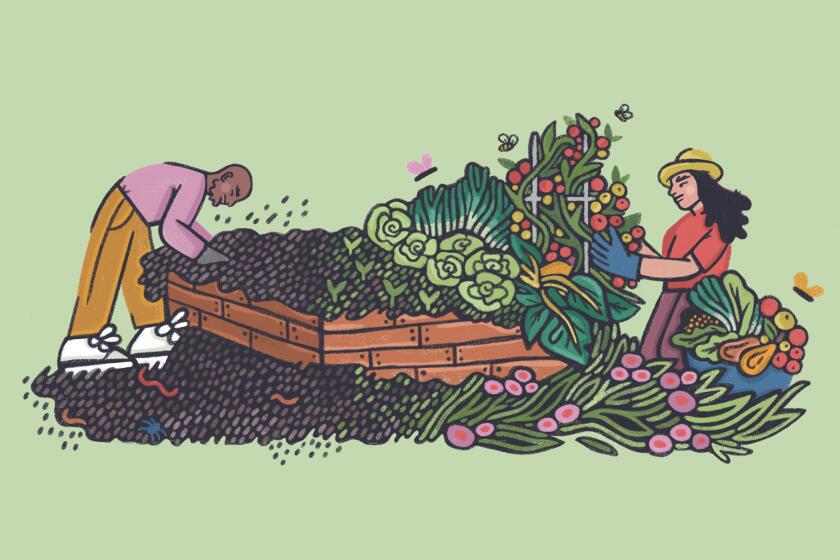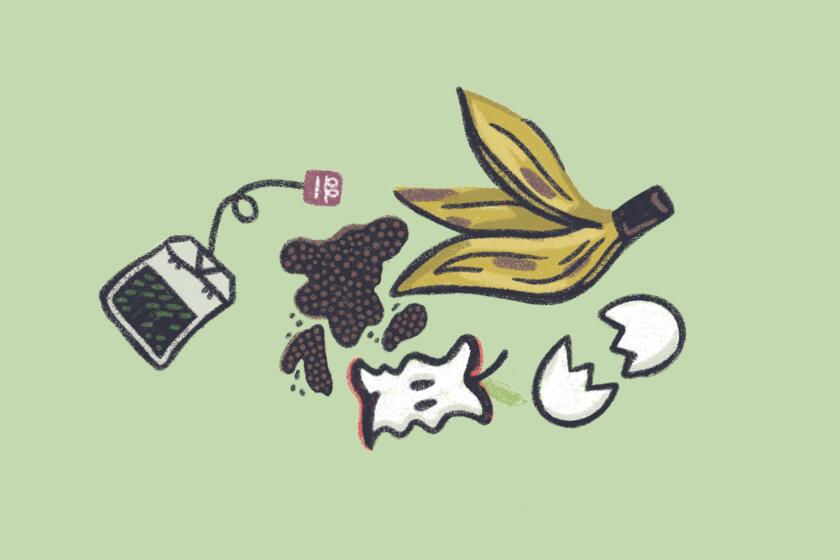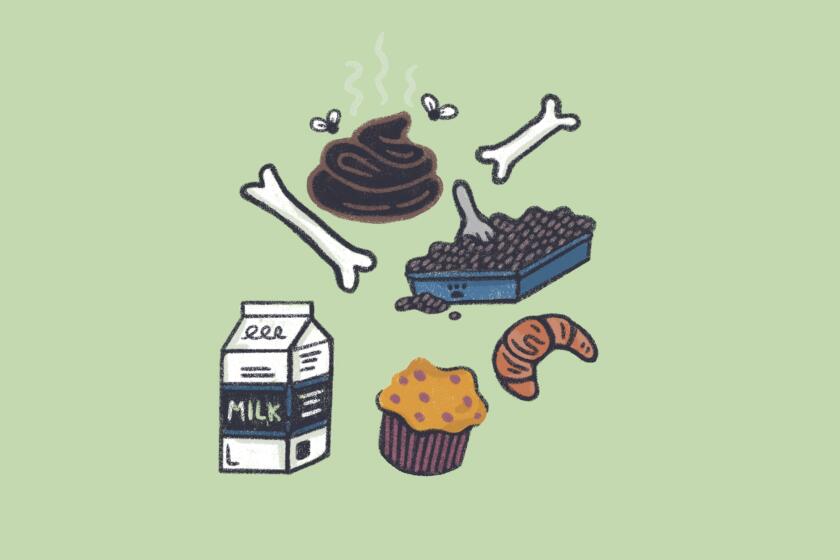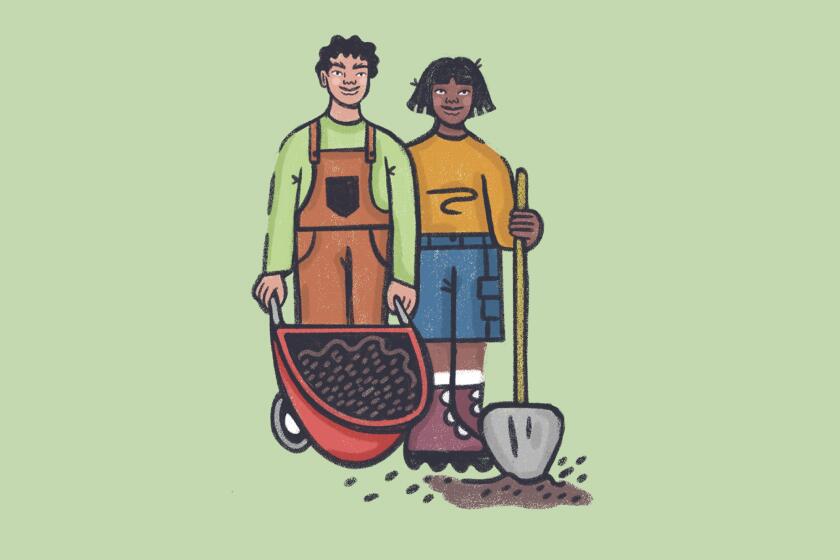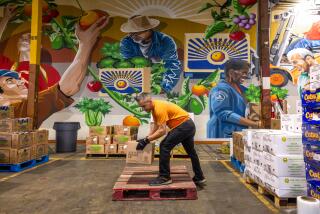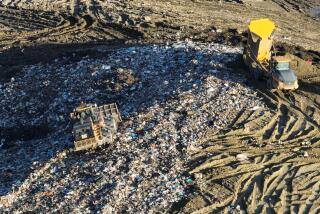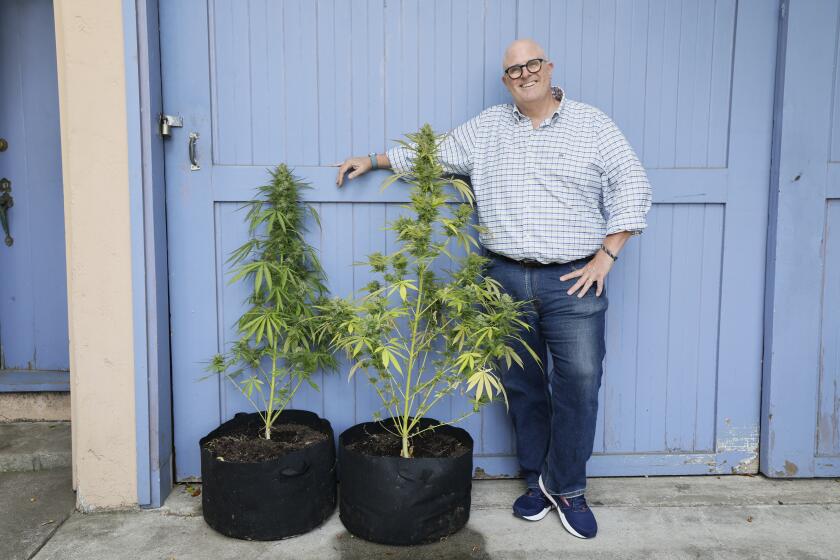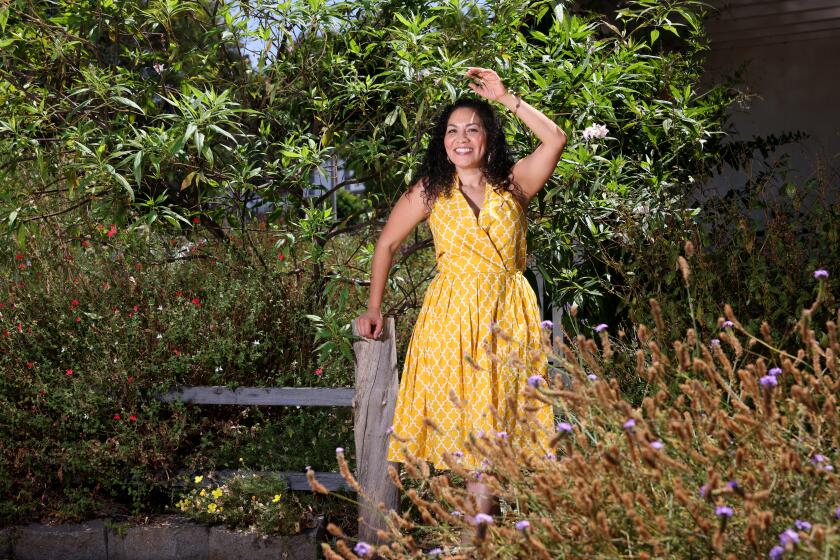Don’t have a yard? Here are 3 good options for composting in small spaces
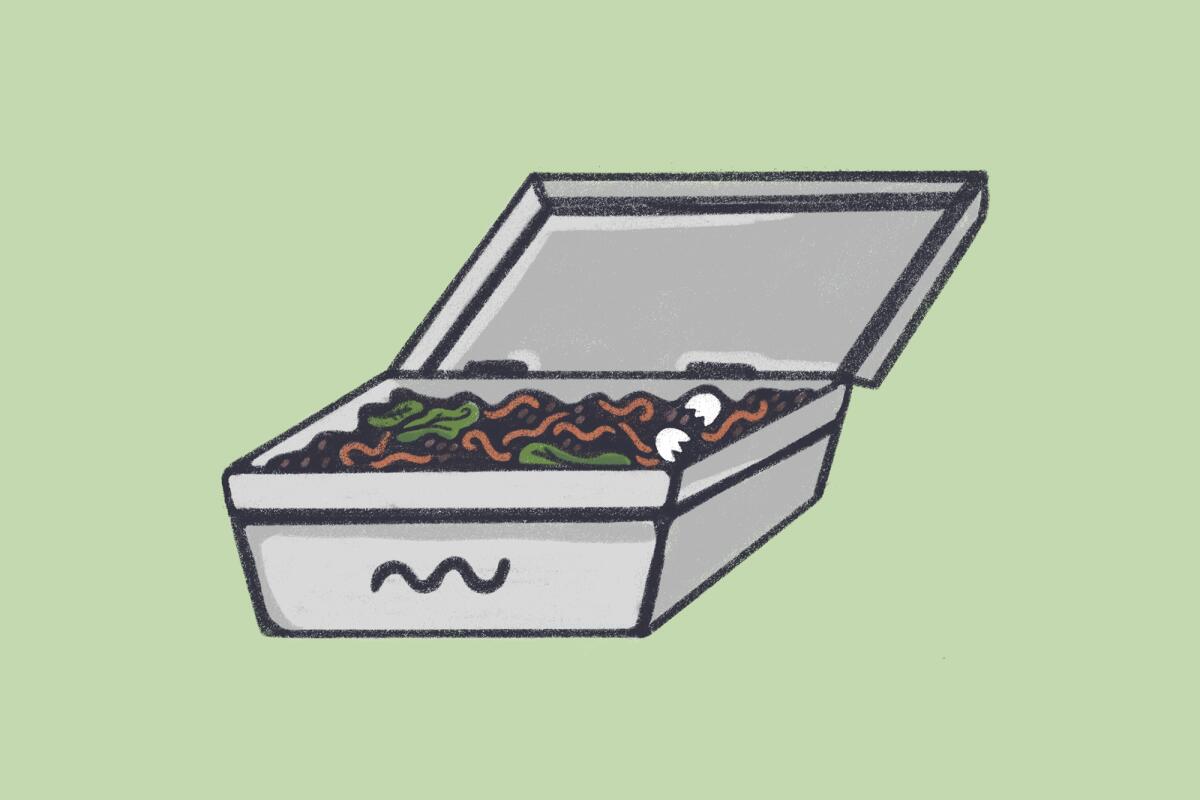
So you know food waste should stay out of the landfill for the good of us all, but what if your jurisdiction doesn’t have a program in place yet, and you don’t have space for a traditional compost pile or garden?
Never fear. Here are some options for small-space composting:
Worm composting
Vermicomposting — a.k.a. worm composting — is a compact way to turn your food scraps into worm castings (worm poop), a moist, crumbly soil amendment known as garden gold because it provides important nutrients to plants while helping them fight off diseases and pests.
Once settled in their new home, a pound of red wiggler worms (roughly 800 to 1,000 Eisenia fetida) can consume a pound of your fruit and vegetable scraps, eggshells and coffee grounds each day.
Find a spot that’s protected from direct sun (temperatures over 85 or under 40 degrees Fahrenheit can be fatal to the worms) and, after a few months, you can start collecting the castings.
A new law requires Californians to recycle food scraps and leftovers. What is composting? What can you — and can’t you — compost? We’re here to help.
Ready-made worm bins can be purchased online for around $135 from Huntington Beach-based Enrecos (worms cost an additional $45) or on Amazon, where the Worm Factory bin costs about $130. L.A. County’s Smart Gardening program sells worm composting bins for $65, complete with worms, and has how-to videos online. Or you can make your own worm bins out of opaque plastic tubs for less than $50 (how-to guides abound online, such as these by Homestead and Chill and Plant Abundance).
Red wiggler worms are challenging to find locally. Seek out worm composters on social media or call local bait shops or pet stores. Composting consultant Lynn Fang said she’s also had good luck ordering from Uncle Jim’s Worm Farm in Pennsylvania, which sells about 1,000 worms for $55.
Bokashi
Bokashi is an Okinawan method of fermenting kitchen scraps using a couple of lidded buckets and a special mixture of wheat bran, microbial liquid, molasses and water. Basically, you drill holes in the bottom of one bucket, drop it inside another bucket to capture any fluids and then start filling the bucket with kitchen scraps, including meat, dairy and cooked products, covering each addition with the “bokashi bran.”
When the bucket is full, cover it with a tight-fitting lid and let it sit in a dark place for a couple of weeks, until the food scraps have fermented down to a white-fungus-covered substance that can be buried in the garden or a compost pile to enrich the soil. You can also add it to containers filled with soil or donate it to a community garden or friend’s garden.
Hiro’s Bokashi Club in Little Tokyo offers detailed instructions online, as well as occasional classes in making bokashi bran and bokashi composting.
Get composting
Join a compost co-op
Want to help but don’t want to compost? Then partner with an organization that lets you drop off food scraps, such as a community garden compost pile (check out options at the L.A. Community Garden Council website) or composting hubs or cooperatives. Some organizations will even pick up your compostable waste at home, for a fee.
You can find a starter list of places in Los Angeles and Orange counties below. Know of others? Email jeanette.marantos@latimes.com.
Los Angeles County
L.A. Compost is a nonprofit that manages regional composting hubs and dropoff locations with farmers markets and other community partners. Its website has a map of 34 composting sites open to dropoffs, with another 20 sites to become available in the next 20 months, says founder Michael Martinez.
Compost Co-ops (via L.A. Compost), currently at GrowGood Urban Farm in Bell, Sow Collective Backyard Farm in Arleta and Fremont Wellness Center and Community Garden in Florence allow members to drop off food waste 24/7 and pick up finished compost for personal use. Membership is free but participants must sign a contract agreeing to volunteer at the co-op for at least four hours a year.
Community Compost Hubs are dropoff sites only. Members understand their food waste will go to improve the soil and grow food at the location. The only hub currently available is at Cottonwood Urban Farm in Panorama City.
Compostable L.A., a women- and BIPOC-owned company that’s one of L.A. Compost’s partners, provides a pickup service for compostable food waste at your home. Rates start at $30 to $45 a month for biweekly or weekly service and a sealable container. Subscribers can collect compost for their personal use twice a year. The service area includes much of Los Angeles; a list of specific neighborhoods is available in its FAQ section online.
Orange County
Orange Compost charges $20 a month to pick up food waste biweekly from residences in Anaheim, Fullerton, Orange and Santa Ana.
More to Read
Sign up for The Wild
We’ll help you find the best places to hike, bike and run, as well as the perfect silent spots for meditation and yoga.
You may occasionally receive promotional content from the Los Angeles Times.
